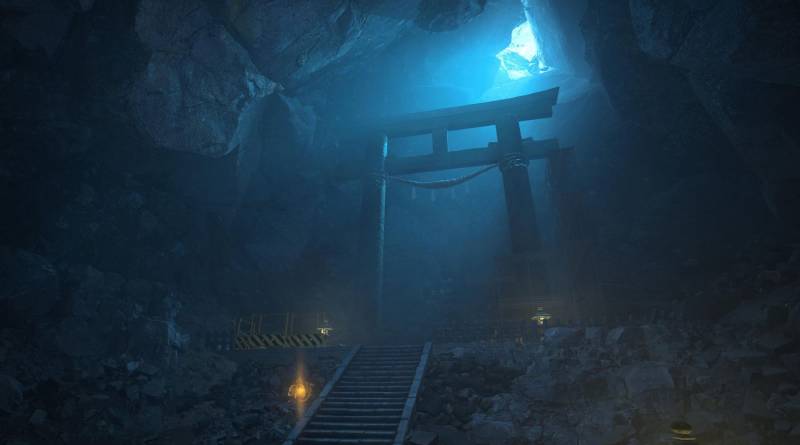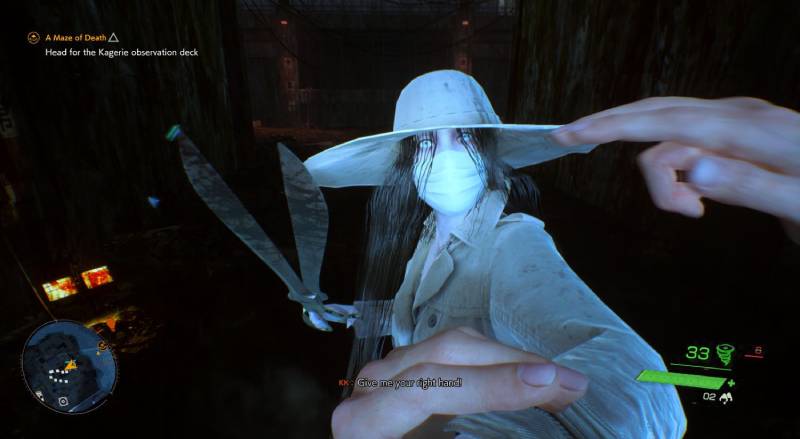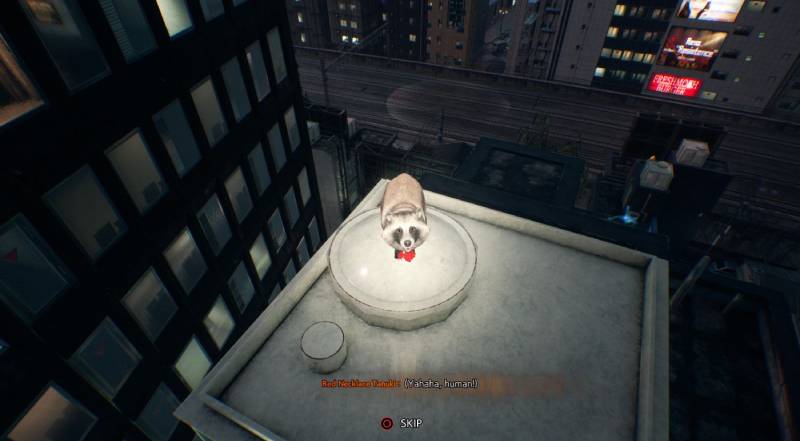Ghostwire: Tokyo a stunning action-adventure with engrossing quests and solid narrative


The horror genre has been a mainstay of gaming for quite some time now, and the gaming landscape is littered with all sorts of experiences across the spectrum, from the horror-action in Resident Evil, interactive drama in Until Dawn/The Dark Pictures Anthology, to Fatal Frame's atmospheric scares.
There is almost always something for all tastes, and for those looking for a stunning action-adventure that takes full advantage of its Japan-centric setting while delivering a sandbox full of interesting and engrossing quests alongside a solid narrative, then look no further than Bethesda and Tango Gameworks' Ghostwire: Tokyo.

Having spoken to the developers and previewed the game in a limited capacity, there has been a high bar set for this game. Coming after The Evil Within duology, there were definitely questions as to what the studio could do next in the realm of horror. Enter the unique vision of Tokyo, a stunning metropolis rich in tradition and history, and now, a supernatural playground for players to enjoy themselves in.
Ghostwire: Tokyo moves fast, almost immediately thrusting players into a city suddenly devoid of human life, the results of a paranormal plot driven by the enigmatic Hannya. Our protagonist, Akito, is only alive thanks to being possessed by ghost hunter KK, and this pair of unlikely heroes are the only ones who can stop the melding of the human world and the underworld.
Without going into spoilers, this is one journey that is full of twists and turns, ushering players into the heart of Tokyo and otherworldly dimensions that are made possible by this fantastical setup. A modern city with iconic landmarks, now interspersed with even more cultural and religious motifs, one moment you are in an alleyway, the next you are in an ethereal dimension of haunting beauty and the unknown darkness.

Putting its knowledge to good use, the Tokyo-based Tango Gameworks definitely flexes its collective muscles to an impressive degree, delivering a city that is paradoxically alive despite the lack of people.
It has been a long while since a game ignited an interest so deep in a city and the Japanese culture, in particular, the mythology and folklore that are drawn upon to add even more colour to the moment-to-moment gameplay of Ghostwire: Tokyo.
This is perhaps best demonstrated by the nefarious Visitors, spirits that have been corrupted due to their strong attachment to all sorts of emotions. Headless students born from anxiety and frustrations, office workers turned faceless walkers due to overwork, anger, and resentment, and even more terrifying creatures that go bump in the night.
Not only that, various yōkai have come out of hiding, each requiring a different approach in order to count on their power.
The enterprising Nekomata makes use of its business acumen as makeshift vendors and relic collectors, while others, like the water-loving Kappa, the weasel-like Kamaitachi, and more require hunting down before surrendering the vital Magatama, an upgrade resource used to unlock skill gates and open the way to even more useful enhancements.

And that all plays into another excellent component of Ghostwire: Tokyo, which is its combat. As Akito/KK, players can tap into Ethereal Weaving, relying on the elements of wind, water, and fire in combat against the evil spirits that stand in their way. While having limited uses, players can fire off amazingly looking attacks that can hurt, stagger, or even knock down these Visitors.
By doing enough damage, you can expose their cores, leading to a satisfyingly brutal end as you rip them apart from within. While Wing Weaving is great for an early salvo, Water Weaving becomes an even more dependable weapon for crowd control, while the fiery destruction of Fire Weaving can match the challenge of the toughest of Visitors.
More often than not, you'll be facing off against groups of enemies that are dangerous both up close and at range. Mastering the ballet of attacking, defending, and utilising the additional tools like a powerful but slow bow or Talismans that can stun or distract your opponents amongst other uses, is the only way you can survive the eternal horde.
[embed]https://youtu.be/AaDCCrj5jU4[/embed]
As you progress through the game, you will grow the Synergy level between Akito and KK, earning skill points to put into the game's skill trees.
Broken into three distinct sections under general abilities, Ethereal Weaving, and equipment, it is up to the player to develop their own unique style that best suits them, even if you will eventually be able to unlock everything if you plan on enjoying everything Ghostwire: Tokyo has to offer.
On that front, there is a mixed bag that awaits the intrepid explorer of the ghost town that is now Tokyo. The game limits your movement early on with dangerous fog that can only be cleared by cleansing Torii Gates scattered around the city, but it all functions as organic tutorials that teach you all the ropes to become a bane to the Visitors.
You will learn to scale heights using the friendly flying Tengu, hunt down the many yōkai for their Magatama, seek out mischievous tanuki disguising themselves as objects, and look to pray at every Jizo Statue you can find to increase your Ethereal Weaving limit.
While those activities are more or less optional, the real meat comes in the game's many side missions, as well as the rescue act of lost souls that now populate the city.

While the main narrative of Ghostwire: Tokyo is certainly heavier in its tale of loss, corruption, and redemption, it can be a little too on the nose. The side missions, however, bring an undeniable blend of entertainment and education, rolled into bite-sized pieces.
From heartfelt stories to the ridiculous, these little jaunts into the everyday lives of people and the paranormal not only leverages the gameplay to great effect, but add in the important human element that makes the happenings relatable, and thus, more endearing.
You might find yourself investigating a piano school only to find an innocent spirit being disturbed by a spectre who cannot bear to compete with a child prodigy, or become embroiled in the urban legend of being the sole passenger on the last train being ferried to a station that does not exist.
A personal favourite is that of a toilet haunted by a wailing spirit, only for things to turn out in unexpected fashion, of a spirit in desperate need of toilet paper.

It is not all about the combat either, with Akito being able to rely on KK's Spectral Vision, an ability that highlights all the interactive elements within the surroundings, and become an invaluable tool for more investigative work.
This is only scratching the surface of the many stories that one can experience in Ghostwire: Tokyo, and as much as we want to share all of the excellent writing and setups, it is best to enjoy all of these yourself when the opportunity arises on your adventures in Tokyo.
Another key aspect of Akito's journey is saving the 240,300 lost spirits that have fallen victim to the fog. In order to do so, players must rescue them by absorbing them with the Katashiro paper dolls and the Spirit Transmission devices found in payphones.
Essentially, it requires you to venture into all corners of Tokyo in order to find these spirits, some of who will need more help than others, adding another mechanic of hand seals using the right stick or the Touchpad to freshen things up just a little.

Having more opportunities to explore Tokyo on the ground and in the air using gliding and the aforementioned Tengu is great, inviting players to see the city from different perspectives. Plus, you will be rewarded with both currency and XP, paving the way to increased levels and more skill points for upgrades.
Linking the activity to skill/level progression provides an enticing incentive, however, this kind of fun might not be for everyone. Although you are free to enjoy the rest of the game without actively hunting down these lost spirits, the benefits it can bring might make players feel they have to engage, whether they like it or not.
On the performance side, the game provides quite a bit of options whether you are looking to maximise resolution or framerate. Unfortunately, there is room for improvement there, as there were occasions of framerate drops when scenes got too busy even when using the targeted mode. Thankfully, outside of that, the game performed flawlessly.

The sound design and music are also worth mentioning, instantly able to transport players into whichever scene and mood being presented at any given moment. That said, get ready to hear plenty of noisy crows and Tengu, whose calls are something that can be less of as you walk around this version of Tokyo.
For a 25 to 30-hour experience, Ghostwire: Tokyo is certainly not lacking in content but what players do have to prepare for, however, is how willing they are to repeat gameplay loops in order to enjoy the exceptional writing.
As much as we enjoy the battles against the Visitors, it is the human side of things that truly stands out in Ghostwire: Tokyo. Saving the world almost seems like an everyday task for players nowadays, but when you are able to see what it means to the folks you are helping and be part of their stories, it makes a much bigger impact than you could imagine.

From banishing evil spirits, taking steps into other realms, to reading the thoughts of wandering dogs and cats in the city, Ghostwire: Tokyo easily runs the gamut when it comes to giving players activities to do. It definitely appeals to a specific crowd, especially for the long haul, but even so, the game packs enough greatness in almost every department that we hope to see replicated by the team for other cities around the world.
Whether that would work remains to be seen, but just like a spirit with unfinished business, we find it undeniably hard to tear ourselves away from this magnificent creation of a city and its stories.
Ghostwire: Tokyo is available on the PSN Store for $81.30.
Ghostwire: Tokyo invites players on an unearthly walk through a wonderfully realised city, and captures our imagination at almost every turn when it comes to humans, relationships, loss, and the paranormal, even if there are stumbles along the way.
Overall — 8.5/10
Gameplay — 8.5/10
Story — 9/10
Presentation — 8/10
Value — 8.5/10
ALSO READ: GhostWire: Tokyo looks set to deliver impressive supernatural adventure
This article was first published in Geek Culture.